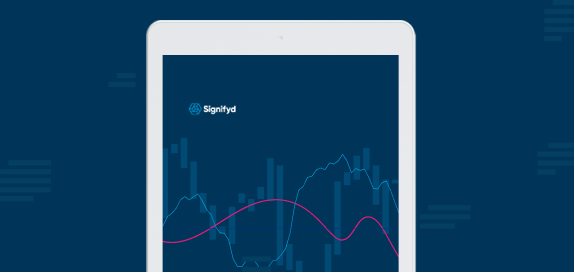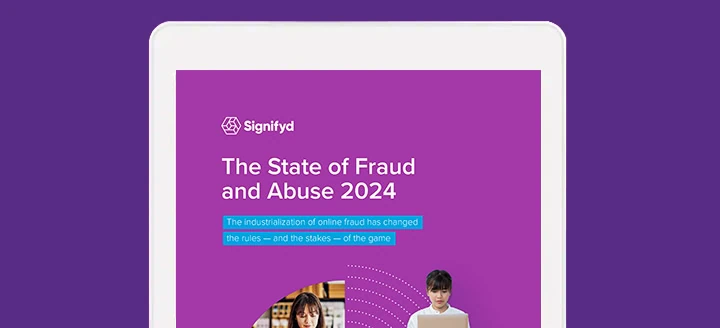Perhaps you’ve heard: These are difficult times. Unprecedented. A crisis. A pandemic.
Hard to argue. But there is more to life. Another side. As is always the case in the all-enveloping darkness, there is light. There are those who aren’t satisfied to worry or wallow or woe-is-me. It is an inspiring human instinct to help when help is needed most.
And so it is with retail.
The Signifyd blog has brought you stories of the challenges and the changes merchants are facing as we move squarely into month three of the international public health emergency. Today we bring hope and goodness and stories that fuel the feeling that we will get through this. We’ll get through it, not on our own, not in isolation (except perhaps physically) not by accident or inaction, but by drafting on the inspiration of those businesses that have taken it upon themselves to make things better.
“Retail brands are always on the frontline with citizens in communities large and small, and they are partnering with the healthcare industry and government officials to ensure COVID-19 is contained and mitigated as quickly as possible,” is the way National Retail Foundation CEO Matthew Shay put it in a written statement
- Though brick-and-mortar stores are temporarily closing and retailers are assembling viable business continuity strategies, many retailers continue to support idled workers.
- Large apparel manufacturers have pivoted to making face masks for medical workers in dire need of personal protection equipment.
- Retailers large and small are coming up with ways to shine light into the darkness of the COVID-19 pandemic.
Many have started by ensuring their workers will be paid, even if they need to stay home. Starbucks is paying employees unable to report to closed shops and it’s keeping stores near hospitals open to serve medical workers. Lacoste is paying all its employees worldwide 100% of their salaries through at least April. The sportswear icon also reopened factories in France to manufacture protective face masks.
Hanes and a group of yarn and clothing companies have gotten into the face mask business, too. IKEA is right with them. Apparel companies like Gap, Eddie Bauer and Nike have jumped in to make personal protective equipment for medical workers. Luxury brand LVMH has converted factories to hand-sanitizer plants for hospitals, as have distilleries across the United States.
Keen is caring for frontline workers by donating 100,000 pairs of shoes
Keen donated 100,000 pairs of shoes to front-line workers and those who have been affected by the coronavirus. They added a warm touch by projecting the image of a heart into downtown Portland, its corporate home. Sometimes, in troubled times, it is the little, heartwarming gestures that mean the most.
Online florist Bouqs looked for its own way to warm the hearts of those who might be feeling overwhelmed in the face of the coronavirus. The retailer asked its fan base on Twitter to nominate frontline workers for a bouquet of flowers that the company would then deliver.
MAC Cosmetics donated $10 million to Project Angel Food and Partners in Health to help feed the sickest among us and to build global supply chains to delivery masks, gloves and hand-washing stations. It is also donating the sales of its Glam Lipstick to relief efforts.
Some are doing what they can. Macy’s and Gap both had to furlough tens of thousands of employees, but both retailers are maintaining health benefits for them, with Macy’s paying 100% of employees’ premiums.
“We expect to bring colleagues back on a staggered basis as business resumes,” Macy’s said this week in a written statement.
Amazon and Whole Foods are giving pay raises to employees working through the coronavirus, according to the National Retail Federation. Walmart is giving more than $500 million in bonuses to hourly workers, moving up bonuses scheduled for later in the year. Walmart has gone to a contactless checkout system for all shoppers, who now settle up on an app. And it is speeding up payments to its suppliers and waiving April rent for the thousands of businesses that operate out of Walmart and Sam’s Club stores.
“It’s our hope that this rent relief will help these businesses financially weather the current situation and take care of their employees,” Walmart said in a statement. “We’re also working with many of our partners to encourage their impacted employees to apply for the 150,000 temporary jobs we plan to fill in the coming months.”
It is a sign that the retail giant understands its unique position in the industry.
“I give Walmart a ton of credit for that,” retail veteran Chris Walton said on his Omni Talk podcast. “It’s nice to see the biggest company in the United States showing the rest of the world how to behave and act in this time of crisis.’
Direct-to-consumer superstar Allbirds donated $500,000 worth of shoes to health care workers who asked for them and then turned to its devoted customers to keep the giving going. Now customers can buy a pair and give a pair by purchasing a bundle from the company.
The New England Patriots’ aerial attack contributed to the cause
Even one of the U.S.’s most recognized brands got into the act. The New England Patriots, working with medical and government officials, dispatched its team jet to China to pick up 1.2 million N95 protective masks that had been obtained by the state of Massachusetts with the help of Patriots owner Robert Kraft. The state had the masks, but no way to get them to the United States. Another 300,000 of the masks, which have been in very short supply, were headed to New York state.
It’s no surprise that retailers are finding creative and nimble ways to help. The industry has been in constant transformation for decades now. It’s in a merchant’s DNA to adjust — quickly.
Crown & Caliber, the seller of pre-owned luxury watches, has launched Giving Time Auctions with a promise to donate 100% of the sales proceeds to organizations helping in the COVID-19 crisis.
Kinsa Health, which manufactures and sells innovative internet-connected thermometers, created a fever map at the end of March. By tracking where the number of fevers were rising and falling, the company was able to almost immediately provide evidence that social distancing works, outpacing public health officials’ ability to do so.
The New York Times reported that Kinsa has more than a million thermometers in the field and that it’s receiving as many as 162,000 readings a day — 162,000 readings that are charting the course of a disease and our future without it.
And there are literally thousands of other such stories. Other large retailers doing big things, sure, but also stories of small business, down to mom-and-pops, finding a way to help. Restaurants serving hospital workers while keeping their workers on the job. The aesthetician who can’t literally touch people and so she’s touching hearts by making safety masks in her home.
The stories just keep coming. And we need them to keep coming — for the good they do for our fellow humans and for the good they do for us. They lift us up. They keep us going.
And they are the incontrovertible proof that we will get through the aloneness, together.
Photo courtesy of Kinsa Health
The COVID-19 crisis is changing the face of business day-by-day, hour-by-hour. Read our weekly report, including data on changing industry trends in the time of Coronavirus.











